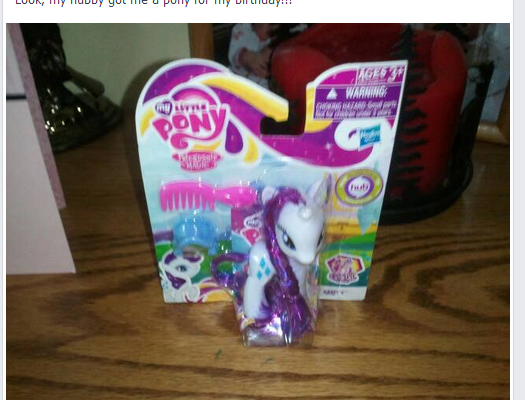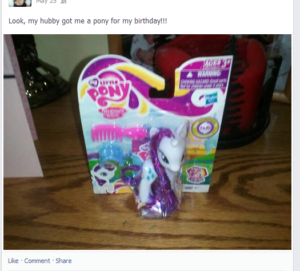What would your future-you have to say to you?
The no-pants guide to spending, saving, and thriving in the real world.
What would your future-you have to say to you?
I once saw a sign on the wall in a junkyard that said, “Failure to plan on your part does not constitute an emergency on my part.”
Another good one: “If everything is top priority, nothing is top priority.”
Once a week, I meet with my boss to discuss my progress for the previous week and my priorities for the coming week. This is supposed to make sure that my productivity stays in line with the company’s goals.
Great.
Once a day, my boss comes into my office to change my top priority based on whichever account manager has most recently asked for a status update for their customer.
Not so great.
At least twice a week, he asks for a status update on my highest priority items. Each time, he could mean the items we prioritized in the weekly meeting, or the items he chose to escalate later. Somehow, getting a new task escalated doesn’t deescalate an existing task.
Everything is a top priority.
To compensate, I’ve been working a few 12 hour days each week, and occasionally coming in on the weekends.
I’m dedicated and still behind.
Prioritizing is treated as an art, or in the case I just mentioned, a juggling act. It should be considered a science. It’s usually pretty simple.
That’s it. Too many times, we get hung up on urgent-but-not-important items and neglect the important things.
The hard part comes when it’s someone else setting your priorities, particularly when that person doesn’t rate things on urgency, importance, and cost but rather “Who has bitched the loudest recently?”
Can I tell my boss that I’m not going to do things the way he told me too? No. A former coworker very recently found out what happens when you do this.
Can I remind him that I’m busting my butt as hard as I can? Yes, but it will just earn me a request to come in on the weekend, too.
Can I ignore the official priorities part of the time, and work on what I feel is most important to keeping our customers happy? Yes, but it’s easy to go too far. “Boss, I ignored what you said, but this customer is happy, now!” won’t score me any points if it happens every week.
Priorities are simple, but not always easy. How do you balance your priorities?

For the past couple of years, my daughters have been riding in horse shows with a local saddle club. We’ve been lucky in that my wife’s cousin has let us borrow her horse for the shows, so costs have been minimal.
Unfortunately, that horse isn’t available this year. We knew that a few months ago, so the plan was to take a year off from the shows and focus on lessons, to get the girls some real skills. We found a great instructor at a stable about 30 miles from our house. Since we live less than two miles from the border of the biggest city in the state, that’s a comparatively short drive.
We pay her $200 per month for 1 lesson per week for both girls. They each get 30-45 minutes on the horse during each lesson.
Now that show season has started, the plan seems to have changed. The girls will be riding a different borrowed pony tomorrow. The shows cost about $50 for registration, lunch, and gas. Our club has 1 show per month, but my wife has assured me they’ll only be hitting three shows this season and limiting the number of events to keep the cost down.
The direct costs aren’t too bad, but there’s a problem with keeping-up-with-the-Joneses accessorizing. Vests and boots and helmets and belts and shirts, oh my.
I’d guess our costs for the summer will be $300 per month.
One thing we’ve been considering is buying a pony. We can get an older pony for around $500-1000. Older is good because they are calmer and slower. Boarding the thing will cost another $200 per month. We’ve been slowly accumulating the stuff to own a horse, so I’m guessing the “OMG, he let me buy a horse, now I need X” shopping bill will come to around $1500, but I’ll figure $2000 to be safe. We already have a trailer, a saddle, blankets, buddy-straps, combs, brushes, buckets, rakes, shovels, and I-bought-this-but-I-will-just-put-it-in-the-pile-of-horse-stuff-so-Jason-will-never-notice stuff. We’re certainly close to being ready to buy.
(FYI: If you’re starting from scratch, don’t think you’re going to get into horse ownership for less than $10,000 the first year, and that’s being a very efficient price-shopper.)
So we’re looking at $5400 for a horse, gear, and boarding the first year. If we cancel the lessons, by spring we’d have $2000 of that saved and most of the rest can be bought over time.
On the other hand, if we go that route, we’ll never save enough to buy the hobby farm we’re looking for.
Decisions, decisions. I should just buy a new motorcycle. Within a year, I win financially.

CNN Money has an article up on 5 things to do this year. After posting a similar article a couple of weeks ago, I thought it’d be interesting to post about someone else’s perspective.
If you are paying fees for a checking account, go somewhere else. There are so many alternatives available that you shouldn’t be throwing money away. Ally Bank has a great no-fee checking account, as does INGDirect, though ING won’t let you write paper checks against the account. The same principle applies to credit cards. If you have a card with an annual fee and you aren’t getting some monster services or rewards to go with it, run away.
I don’t necessarily agree with this one. If you are in debt, it’s better to use the raise to pay off that garbage, first. When I got my last raise, I immediately boosted the automatic payment for my car to use every new penny. I’ve never had the money available, so I haven’t missed it. Whatever you do, fight lifestyle inflation. Just because you have some more money doesn’t mean you need to spend it. At my last job, I got a substantial raise, so I bought a new car, only to get laid off a few months later.
Wealth doesn’t matter if you squander your health. Go get a physical. Every disease is easier to treat if you catch it earlier as opposed to later. Don’t make the mistake of running your body into the ground. You will regret it later. Effective this year, most health plans will cover a physical with no copay, co-insurance, or deductible allowed.
B***-****. If you’ve still got debt, don’t concentrate on using more of it. Get that crap paid off. If you’re out of debt, look into getting a rewards card that aligns with your goals. If you like to travel, get a card that gives you frequent flier miles. Otherwise, I’d go with a cash-back rewards card.
37% of Americans don’t take all of the vacation to which they are entitled. That’s insane! We work harder and better when we have time to recuperate and relax. Unfortunately, I usually fall into that unfortunate 37%. My vacation resets on February 1st, and this will be the first year in a lot of years that I haven’t had to roll it over or even lose some.
What is your financial plan for the new year?
This is a guest post by MoneySuperMarket.
Making changes in your daily life that minimize your impact on the environment is the right way to go green. While most people are happy just to know the environment is being protected, there are other benefits to going green. Pick a few of these five lifestyle changes and enjoy having a little extra cash in your pocket as well.
Dining out is a fun family experience, but it takes its toll on your wallet and your neighborhood. Restaurants create millions of tons of trash each year. This tip is to the people who already avoid fast food for health reasons, but cooking with your friends and family is a great way to get closer.
Some hobbies require a lot more equipment or materials, therefore creating more waste and using more energy. Creative extracurricular activities use inexpensive or recycled goods instead, requiring fewer trips to the sports goods store. Woodcarving can be practiced with scraps from cabinetmakers, while yarn for knitting can come from old sweaters that are no longer worn.
Each water heater features a small screw or dial that allows you to set the perfect temperature. Millions of people have their heaters set higher than necessary, wasting a lot of electricity each year. You can safely turn the heat down to about 125 degrees Fahrenheit, which could net you some hefty annual savings if it is at 140 or 150 degrees right now. Most people never use water for washing or showering that is higher than 130 when mixed in the tap.
Driving back and forth to work puts a lot of wear and tear on your vehicle. Rising gas prices has made it even harder to afford a long daily commute by car. Sharing the responsibility among a group of co-workers or fellow parents at your child’s school can help to spread out the costs and the impact on the environment.
You don’t have to have a green thumb to grow your favorite herbs in a windowsill pot. Start out easy and try a potted dwarf lime tree or a terracotta planter full of strawberries on the patio. The vegetables you harvest don’t have to contain pesticides. Compare your gardening costs against prices for high-end organic produce at the store. You could save thousands of dollars each year and reduce the damaging effects of large-scale agriculture.

We’re making some changes to how we manage our finances this year. Our destination isn’t changing, but the trip is.
This is all stuff my wife and I have talked about and agreed to, but now, it’s organized and laid out. We HAVE to do it or something similar. We are both on board with this plan. We should see our debt management plan skyrocket, without feeling like we are missing out on life.